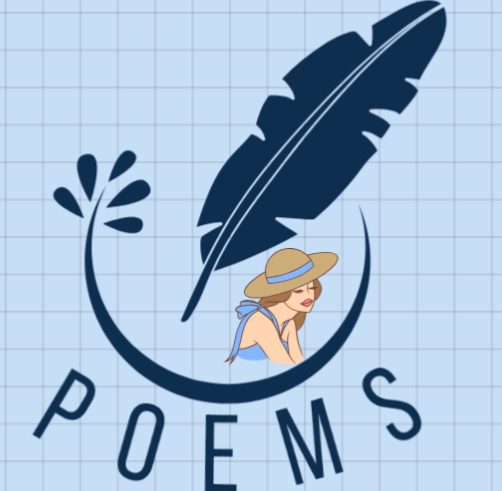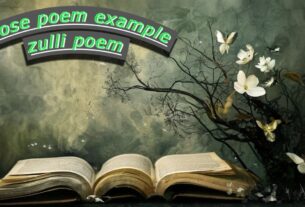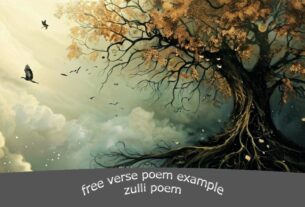Ever stumbled upon a poem that painted a vivid story in your mind? That’s the magic of short narrative poems! These compact but powerful pieces of art weave tales that spark the imagination and provoke emotions. They are like the storytellers of old, using rhythm and rhyme instead of voices and gestures. Let’s dive into the world of short narrative poems and see what makes them uniquely enchanting.
What is a Short Narrative Poem?
Short narrative poems are poems that tell a story in a condensed form. They are like mini-sagas that capture emotions, plots, and characters in a few lines. Often utilizing traditional poetic elements like stanza, rhyme, and meter, they pack a punch with their brevity and impact.
Narrative poems typically center around specific themes or stories and can range from touching love stories to thrilling adventures. Unlike lengthy epic poems, short narrative poems make the reader feel something potent with a quick hit—like a strong espresso shot that jolts your mind.
To get a sense of different forms a narrative poem can take, you might explore the variety of narrative poems that exist in the literary world.

Key Features of Short Narrative Poems
What makes narrative poems tick? Primarily, it’s the rhythm and meter—giving them a musical quality that engages the reader. They often incorporate elements like:
- Rhyme: Rhyming words add to the poetic vibe.
- Meter: This is the beat of the poem, providing flow and structure.
- Storytelling elements: Plot, characters, and setting convey the narrative.
Short narrative poems are versatile; they can be humorous, tragic, or somewhere in between. The art of weaving a coherent story within a compact structure is what makes them shine.
Popular Themes in Short Narrative Poems
What stories do these poems tell? Common themes resonate deeply and contextually with readers, such as:
- Love and Loss: The timeless tales of affection and heartbreak.
- Adventure and Exploration: Journeys, quests, and the thrill of the unknown.
- Moral Lessons: Insights and reflections, often with a twist of wisdom.
These themes tap into universal human experiences, allowing readers to connect emotionally with the verses and find more examples of narrative poems.
Notable Examples of Short Narrative Poems
Now let’s explore some examples—old treasures and new gems alike—that capture the essence of narrative poetry.
Classic Short Narrative Poems
The classics have stood the test of time and continue to enchant readers:
- ‘The Raven’ by Edgar Allan Poe: A haunting dialogue between a man and a mysterious raven, filled with despair and intrigue.
- ‘Casey at the Bat’ by Ernest Lawrence Thayer: A humorous and captivating tale about hubris and its consequences in a baseball game.
Modern Short Narrative Poems
Contemporary poets also bring fresh perspective and creativity to the genre:
- Some authors craft stories that address modern existential themes with wit and poignancy, touching on contemporary issues through the lens of narrative poetry.
The Impact of Short Narrative Poetry in Education
Short narrative poems play a crucial role in education, sparking creativity and bolstering literacy among students. By introducing a story through poetry, educators can captivate young minds and nurture a love for literature.
Engaging Young Readers
Children’s imaginations are boundless, and narrative poems act as a catalyst, enhancing their ability to visualize and connect with stories. Poems like Roald Dahl’s witty pieces can make literature an exciting adventure!
For those who want more on how poetry can impact education, check this detailed account of the benefits.
Teaching Techniques for Narrative Poems
Teachers can utilize several approaches to make narrative poetry engaging:
- Performance Reading: Bring the poems to life through expressive reading.
- Creative Assignments: Encourage students to write their own narrative poems.
- Discussion & Interpretation: Dive deeper into themes and meanings with students.
Programs focused on poetry in classrooms demonstrate how poetry can develop reading skills, stretching beyond mere enjoyment to craft language appreciation.
Conclusion
Short narrative poems are jewels in the crown of literature, timeless pieces with the power to enchant, educate, and enliven imagination. They offer a glimpse into worlds filled with emotion and complexity, all wrapped in concise verse. Whether you’re a passionate reader, a curious explorer of words, or a teacher looking to inspire, these poems invite you to step into their stories and see where they lead. So why not dive into these captivating tales and let them whisk you away on a journey of emotions and imagery?




